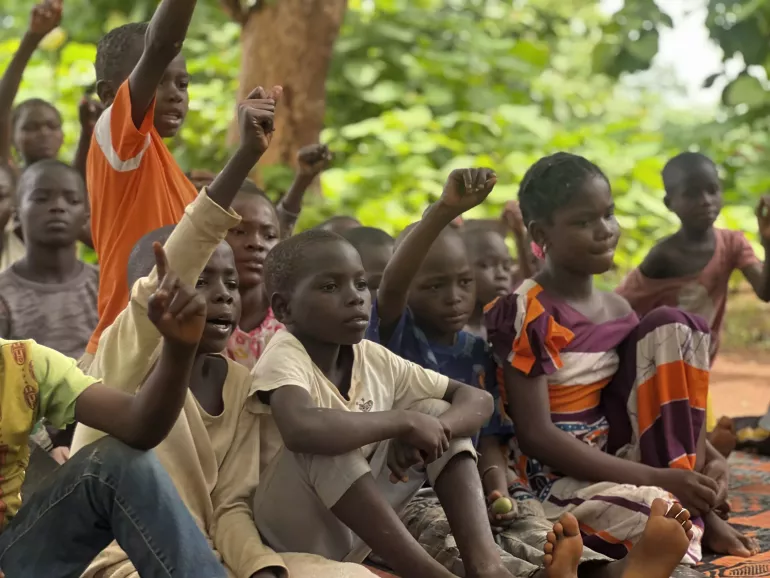The Day of the African Child, observed annually on June 16th, holds profound significance for the future of the continent and the world. This day commemorates the brave students who participated in the 1976 Soweto Uprising in South Africa, protesting against the injustices prevalent in the apartheid-era education system. Their courageous stand serves as a potent reminder of the ongoing struggle to ensure every African child’s fundamental rights and welfare, as enshrined in the African Charter on the Rights and Welfare of the Child. Furthermore, the Day of the African Child highlights a critical demographic shift: by 2050, projections indicate that 40% of the world’s children will live in Africa. This demographic reality presents both a significant challenge and an unprecedented opportunity for the continent and the global community. It underscores the urgent need for renewed commitment and collaborative action to invest in Africa’s youngest generation, ensuring they are equipped to thrive in the 21st century.
UNICEF Ghana, recognizing the gravity of this demographic trend, emphasizes the profound implications for the nation. With children currently comprising approximately 45% of Ghana’s population, the objectives of the Day of the African Child resonate deeply within the country. This significant proportion underscores the vital importance of concerted efforts to secure a brighter future for Ghana’s children and, by extension, the nation’s overall development. The Day of the African Child serves as a clarion call for collective action, demanding a concerted focus on key areas of child development. This includes investing in foundational learning, ensuring access to quality healthcare and nutrition, strengthening child protection mechanisms, promoting digital inclusion, and fostering job-readiness skills. These investments are not merely about ensuring survival but about empowering African children to thrive and reach their full potential, contributing meaningfully to their communities and the global landscape.
Osama Makkawi Khogali, UNICEF Country Representative in Ghana, emphasizes the urgency of this call to action. He stresses the interconnectedness of Africa’s future with the global future, highlighting the need for immediate and bold action from all stakeholders. The focus on investing in children is not merely a matter of social responsibility but a strategic imperative for building a sustainable and prosperous future for both Africa and the world. Equipping children with the necessary tools and opportunities is not just about improving their individual lives; it is about empowering them to become agents of change, driving progress and contributing to the continent’s transformative growth.
The African Charter on the Rights and Welfare of the Child, comprising 48 articles, provides a comprehensive framework for safeguarding the rights and well-being of African children. This charter emphasizes the importance of providing children with access to quality education, healthcare, protection from harm, and a nurturing environment where they can develop their full potential. It recognizes the inherent dignity of every child and underscores the responsibility of governments, communities, and individuals to uphold these rights. The Day of the African Child serves as a powerful reminder of the commitments enshrined in this charter and the ongoing need to translate these principles into concrete actions.
The call to action extends beyond mere commemoration; it demands tangible commitments from all partners, encompassing governments, communities, and individuals. It necessitates renewed dedication to ensuring that every African child, particularly those in Ghana, has access to the essential building blocks for a thriving future. This includes quality education, comprehensive healthcare, robust protection mechanisms, a life of dignity and respect, and a safe and nurturing environment. These are not merely aspirational goals but fundamental rights that must be actively pursued and protected. Investing in Ghana’s children, in parallel with investments across the continent, represents a strategic investment in the nation’s and the world’s future.
The future of Africa, and indeed the world, hinges on the well-being and empowerment of its children. Investing in their education, health, and overall development is not just a moral imperative but a strategic investment in a brighter future. By empowering African children, we are investing in the next generation of leaders, innovators, and changemakers who will shape the destiny of the continent and contribute to a more prosperous and equitable world. The Day of the African Child serves as a powerful reminder of this shared responsibility and the urgent need for collective action. It underscores the interconnectedness of our destinies and the importance of working together to ensure that every African child has the opportunity to thrive and reach their full potential.














